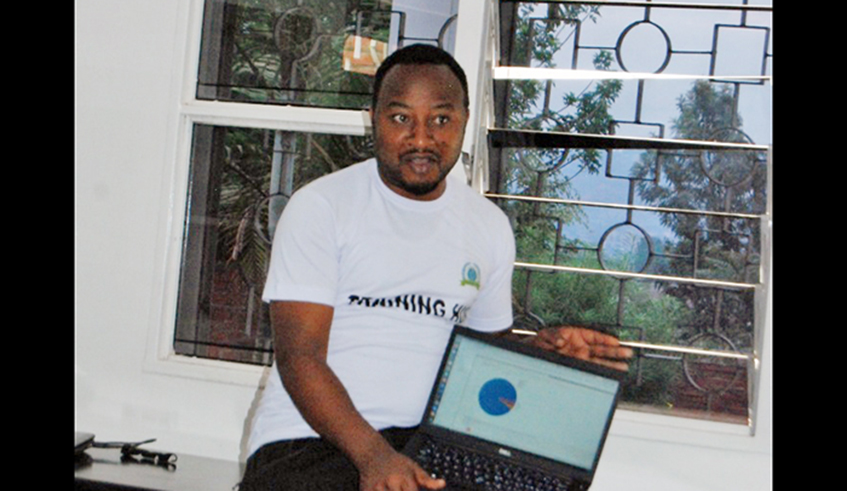

Last year after his studies, Jean Desire Habiyambere joined one company as a data analyst intern.
This was shortly after graduating from the African Institute for Mathematical Sciences (AIMS), with a Master’s degree in mathematical science.
At the time, he wasn’t doing anything related to data analysis because the company did not have data for customer behaviour analysis.
"After the internship, I joined another company as a data coordinator. I interacted with other analysts who had skills in the field,” he says.
Habiyambere says after observing all the challenges, he looked for solutions.
And this is how the idea of offering training came into existence.
What the hub does
The training hub started its operations mid this year to empower pre-service and in-service data science-related employees.
The training focuses on promoting programming skills in python language.
The company offers different training in data science, and is based in Gasabo District.
It provides training to university students and graduates with STEM backgrounds, as well as individuals belonging to organisations with these demands.
It also provides research and data science consultation for start-ups and organisations.
Challenges
Habiyambere says he found that the 2018 Data Security Confidence Index from Gemalto showed that only 12 per cent out of 70 per cent of the data created by individuals can be dealt with.
From the findings, he says a big chunk of data that can be used to generate new insights with potential advantages is left unanalysed.
After analysis, he also discovered that university students and graduates with STEM backgrounds present little awareness of the available opportunities in data science.
"In fact,” he says, "few of them are willing to make data science their career because the field is untapped in Rwanda.
"Some companies fail to manipulate the data that helps students and graduates make everyday decision.
"With the hub, the gap is reduced. The motive behind this initiative is also the willingness to impact society at large.”
Impact
With these skills, Habiyambere believes they can generate recommendations to businesses, academics, or non-academics on how they can do things using data to achieve their goals.
The hub is already offering advanced data science training that empowers graduates with stem background, with specific advanced data science programmes that are needed for the labour market in Rwanda.
"This will address the problem of scarcity of manpower in data science and will encourage big companies to hire locals instead of foreigners,” he says.
The company also has two start-ups as clients where they train their employees and do consultations for them.
Due to Covid-19, the company, for now, empowers a small number of STEM graduates.
In the future, they are planning to partner with different universities to establish data science clubs for students.
According to Habiyambere, establishing clubs empowers students with basic skills on data science topics and makes them confident with different data science tools that they can be more sought-after after graduation.


